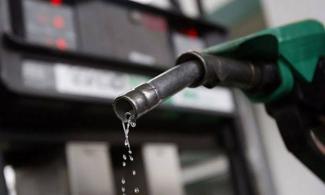
From the latest data, the Nigerian government has spent N1.593 trillion between January and June 2022 on petrol subsidy.
The Nigerian National Petroleum Company Limited (NNPCL) has said that a litre of the Premium Motor Spirit (PMS), also known as petrol, will cost consumers N462 with the removal of the government’s subsidy.
From the latest data, the Nigerian government has spent N1.593 trillion between January and June 2022 on petrol subsidy.
An analysis of the July presentation to the Federal Allocation Account Committee (FAAC) showed that fuel subsidy or under-recovery/value shortfall, as described by NNPCL, rose to N1.593 trillion in the first half of 2022, The PUNCH reports.
Figures from the report indicated that the amounts spent as subsidy on the commodity in January, February and March were N210.38 billion, N219.78 billion and N245.77 billion respectively.
A total of N271.59 billion, N327.1 billion and N319.18 billion were spent as subsidy in April, May and June respectively.
However, the NNPCL Group General Manager, Group Public Affairs Division Mr. Garba Muhammad, in a statement issued on Sunday, said the petrol price could increase to N462 per litre without the subsidy.
The statement said, “The NNPC Ltd notes the average daily evacuation (Depot truck out) from January to August 2022 stands at 67 million litres per day as reported by the Nigerian Midstream and Downstream Petroleum Regulatory Authority, NMDPRA.
"Daily Evacuation (Depot loadouts) records of the NMDPRA do carry daily oscillation ranging from as low as 4 million litres to as high as 100 million litres per day."
It added that the “rising crude oil prices and PMS supply costs above PPPRA (now NMDPRA) cap had forced oil marketing companies’ (OMCs) withdrawal from PMS import since the fourth quarter of 2017.
“In the light of these challenges, NNPC has remained the supplier of last resort and continues to transparently report the monthly PMS cost under-recoveries to the relevant authorities."
According to the NNPC, the average Q2, 2022 international market determined landing cost was US$1,283/MT and the approved marketing and distribution cost of A46/litre.
“NNPC Ltd shall continue to ensure compliance with existing governance framework that requires participation of relevant government agencies in all PMS discharge operations, including Nigerian Ports Authority, Nigerian Midstream and Downstream Petroleum Regulatory Authority, Nigerian Navy, Nigeria Customs Service, NIMASA and all others,” the company said.
Furthermore, NNPC Limited admitted that it “recognizes the impact of maritime and cross border smuggling of PMS on the overall supply framework. NNPC also acknowledges the possibilities of other criminal activities in the PMS supply and distribution value chain.
“As a responsible business entity, NNPC will continue to engage and work with relevant agencies of the Government to curtail smuggling of PMS and contain any other criminal activities”.
In July, the Minister Minister of Finance, Budget and National Planning, Mrs. Zainab Ahmed, disclosed that petrol subsidy could gulp N6.72 trillion in 2023 while speaking during the Public Consultative Forum on the draft federal government 2023 – 2025 Medium Term Fiscal Framework & Fiscal Strategy, in Abuja.
According to her, the deficit underscored the fiscal challenges confronting the federal government.
The minister presented the projected fiscal outcomes in the medium term under two scenarios, saying fuel subsidy would virtually gulp the entire revenue next year, if not eliminated.
She had said, “Scenario 1 – the Business-as-Usual scenario: This assumes that the subsidy on PMS, estimated at N6.72 trillion for the full year 2023, will remain and be fully provided for.
“Scenario 2 –Reform scenario: This assumes that petrol subsidy will remain up to mid-2023 based on the 18-month extension announced early 2021, in which case only N3.36 trillion will be provided for.”
She warned that if the nation insisted on fuel subsidy throughout 2023, the net revenue could fall to as low as N500. 566 billion.
Ahmed maintained that in scenario (1), given the severely constrained fiscal space, it is not feasible to make any provision for MDAs’ capital expenditure in 2023 beyond multilateral/bilateral loan-funded and donor-funded projects.
“The FGN’s 2023 aggregate expenditure is estimated at N16.98 trillion, which is N337.05 billion (1.9%) lower than the 2022 budget.
“The sums of N20.29 trillion and N22.73 trillion are projected to be spent by the FGN in 2024 and 2025, respectively."